Pakistan has established various economic frameworks to attract foreign investment and facilitate trade, including Free Zones, Special Economic Zones (SEZs), and Non-Custom Paid (NCP) Areas. These zones provide businesses with tax benefits, duty exemptions, and simplified regulations, making Pakistan an attractive destination for industrial growth and export-oriented industries.
-
Non-Custom Paid (NCP) Areas
Definition:
NCP areas allow businesses to import raw materials, machinery, or goods without paying customs duties upfront, provided they are either:
-
Re-exported after processing/manufacturing.
-
Sold domestically after duties are paid.
Common Use Cases:
-
Bonded warehouses.
-
Export-oriented industries, including textiles, pharmaceuticals, and technology.
Key Locations:
-
Karachi Export Processing Zone (KEPZ)
-
Sialkot Export Processing Zone
-
Lahore Technopolis (focused on technology-based businesses)
-
Free Zones / Export Processing Zones (EPZs)
Purpose:
EPZs are designed to promote exports by providing businesses with tax incentives, duty exemptions, and a business-friendly regulatory environment.
Key Features:
-
Duty-Free Imports: Businesses can import raw materials, machinery, and equipment without paying customs duties.
-
Tax Exemptions: Includes income tax holidays, often lasting up to 10 years.
-
100% Repatriation of Profits: Companies can freely send their profits and dividends abroad.
Major EPZs in Pakistan:
-
Rashakai SEZ (Khyber Pakhtunkhwa) – A major SEZ under the China-Pakistan Economic Corridor (CPEC).
-
Bin Qasim Industrial Zone (Karachi) – A large-scale industrial hub.
-
Faisalabad Industrial Estate – A manufacturing and export-oriented zone.
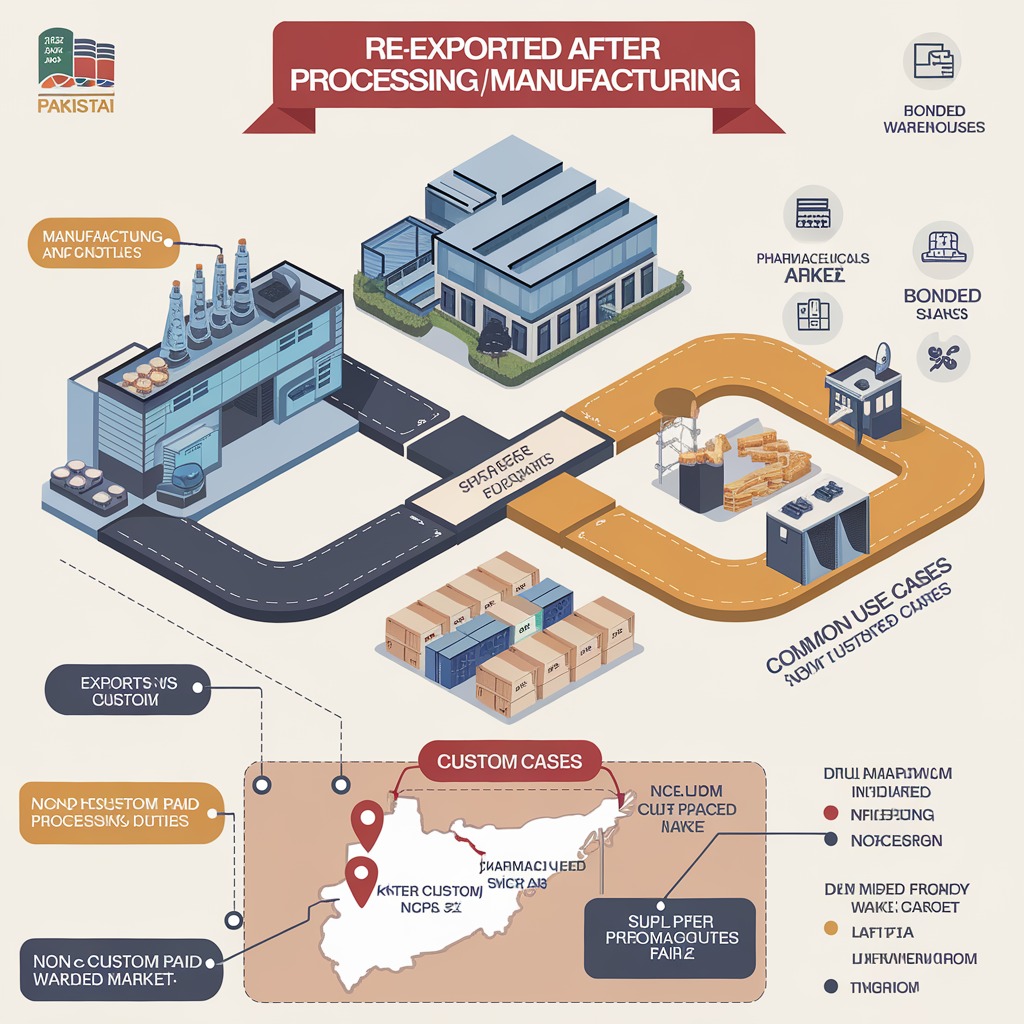
-
Special Economic Zones (SEZs)
SEZs in Pakistan are primarily linked to CPEC (China-Pakistan Economic Corridor) and provide an ideal environment for businesses looking to manufacture and export goods.
CPEC-Linked SEZs:
-
Rashakai SEZ (Khyber Pakhtunkhwa)
-
Allama Iqbal Industrial City (Punjab)
-
Dhabeji SEZ (Sindh)
Incentives for Businesses:
-
10-Year Tax Holiday: Enjoy long-term tax relief.
-
Duty-Free Imports: Import machinery and raw materials without customs duties.
-
Simplified Approval Processes: Reduced bureaucratic hurdles for business registration and operations.
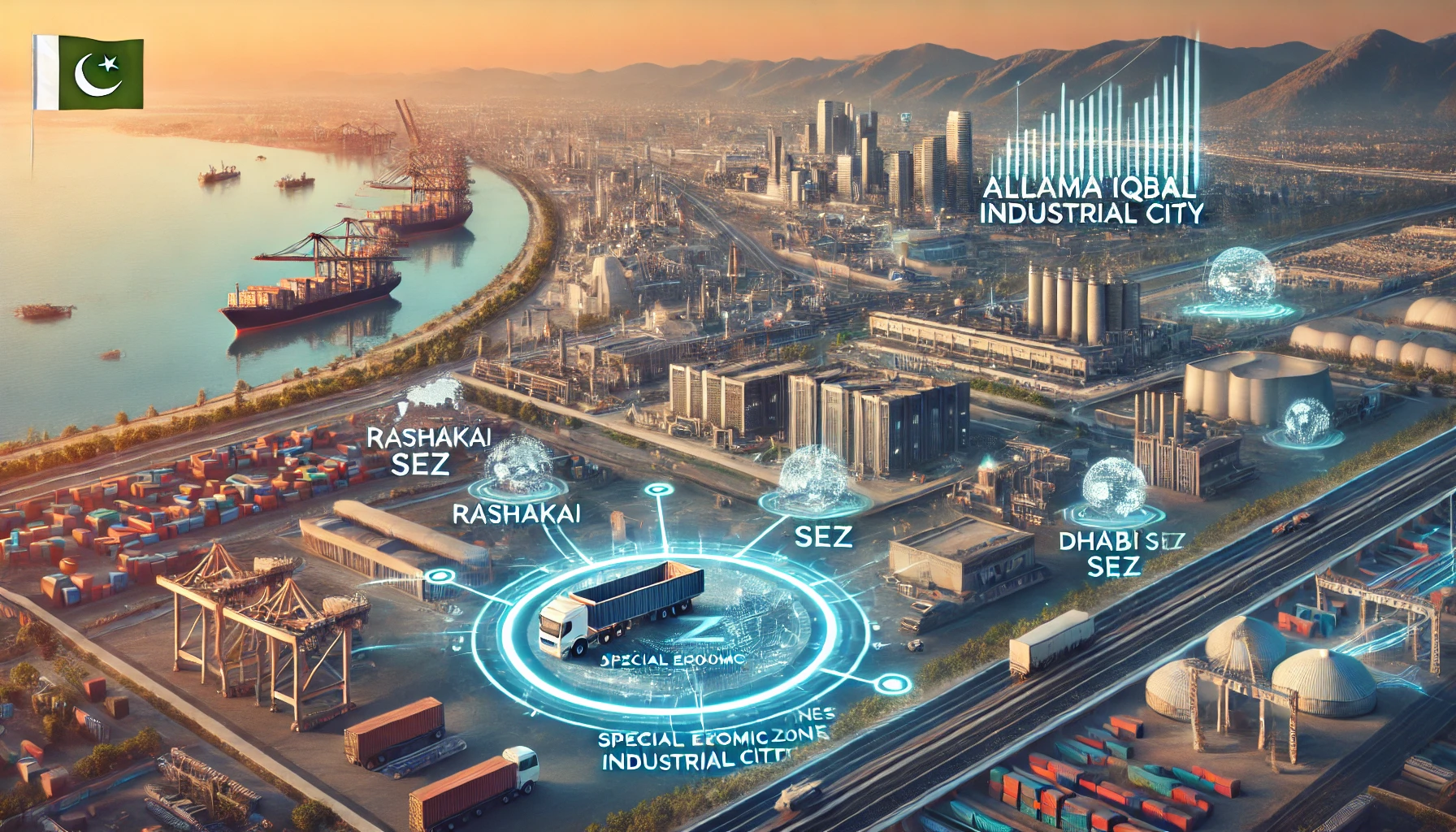
-
Dir & Swat (Khyber Pakhtunkhwa) – Current Status
While Dir and Swat are not officially designated as Free Zones, SEZs, or NCP Areas, there are opportunities for businesses to benefit from provincial incentives.
Potential Business Advantages in Dir & Swat:
-
Localized Incentives: The Khyber Pakhtunkhwa government offers benefits for industries like tourism, agriculture, and renewable energy.
-
Tax Reliefs: Businesses may qualify for provincial tax breaks under the KPK Industrial Policy.
NCP-Like Options in Dir & Swat:
-
Use of Bonded Warehouses in nearby cities such as Peshawar for duty deferral.
-
Partnering with CPEC-Linked SEZs like Rashakai SEZ, located approximately 150km from Swat.
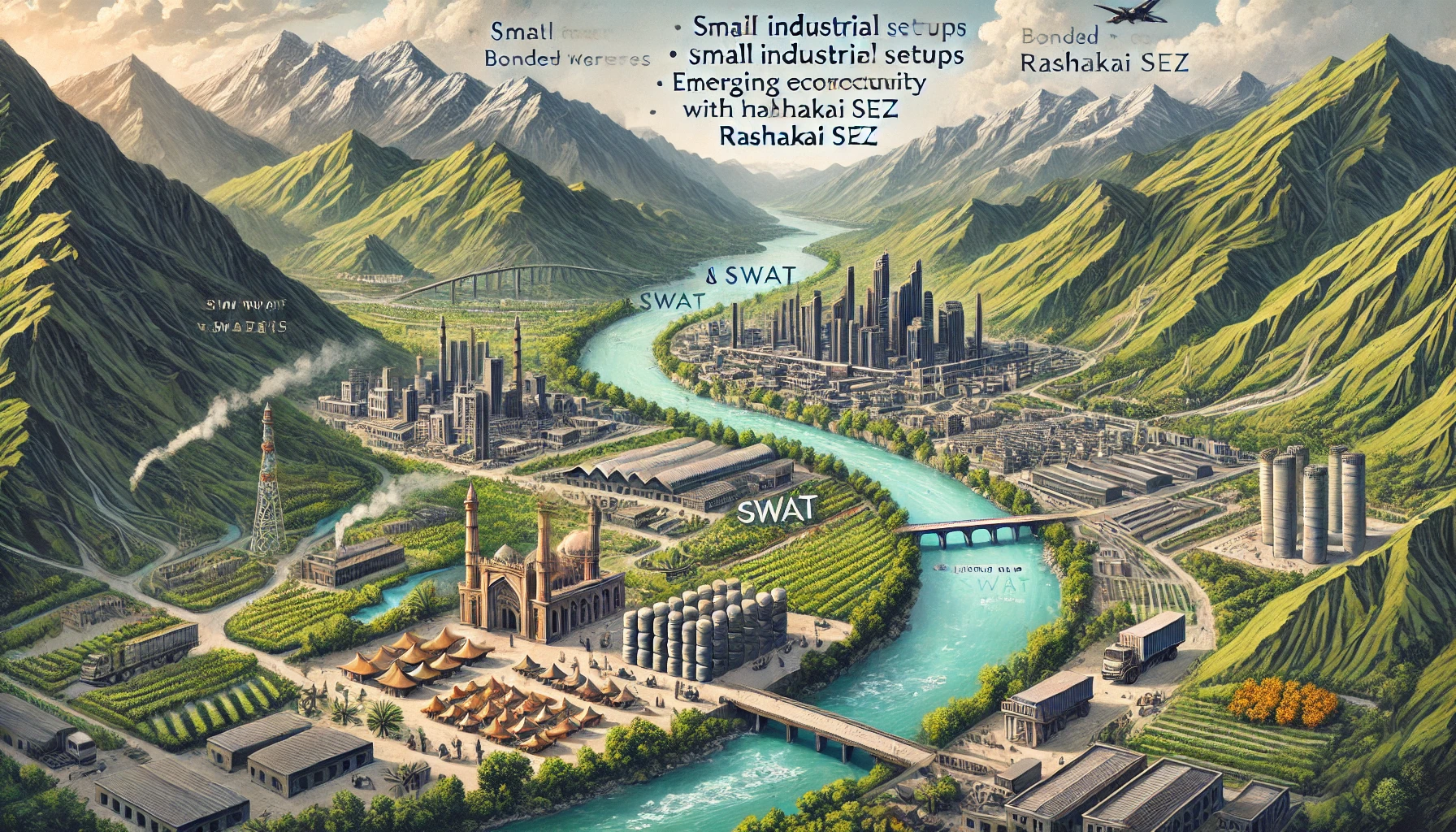
-
How to Operate in NCP/Free Zones?
Registration Requirements:
-
EPZs: Apply through the Export Processing Zones Authority (EPZA).
-
SEZs: Register with the Board of Investment (BOI).
-
Bonded Warehouses: Obtain a license from Pakistan Customs.
Compliance Obligations:
-
Submit a bond or bank guarantee to cover potential customs duties.
-
Maintain detailed records for audits.
Export Regulations:
-
In EPZs, 80% of production must be exported.
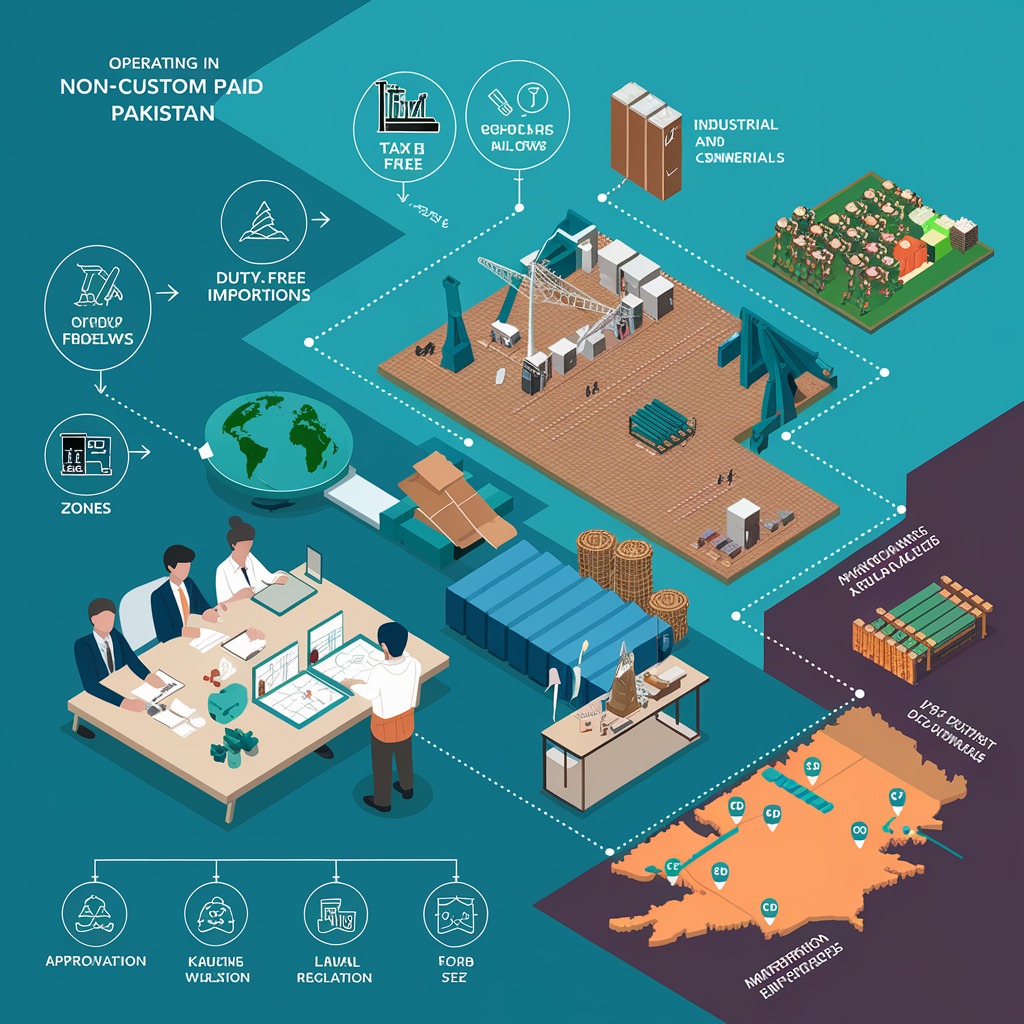
-
Benefits of Operating in Free Zones & SEZs
Businesses operating in these special zones enjoy multiple advantages:
-
Duty-Free Imports: Save 5–35% on customs duties.
-
Tax Exemptions: Long-term corporate tax holidays.
-
Simplified Business Operations: Single-window clearance for permits and documentation.
-
Advanced Infrastructure: Reliable access to electricity, gas, and logistics hubs.
-
Challenges of Operating in These Zones
-
Limited Domestic Sales: Products sold locally from Free Zones incur full customs duties.
-
Bureaucratic Hurdles: Delays in approvals can be avoided by working with local consultants.
-
Geographical Constraints: Most Free Zones and SEZs are concentrated in Punjab and Sindh, making accessibility difficult for businesses in other regions.
-
Practical Steps for Foreign Companies Looking to Invest
-
Target SEZs/EPZs: These zones are ideal for export-focused manufacturing (e.g., Rashakai SEZ).
-
Use Bonded Warehouses: Allows temporary duty deferral (e.g., warehouses in Karachi or Lahore).
-
Leverage CPEC Opportunities: Partnering with Chinese firms in SEZs can provide access to subsidies and incentives.
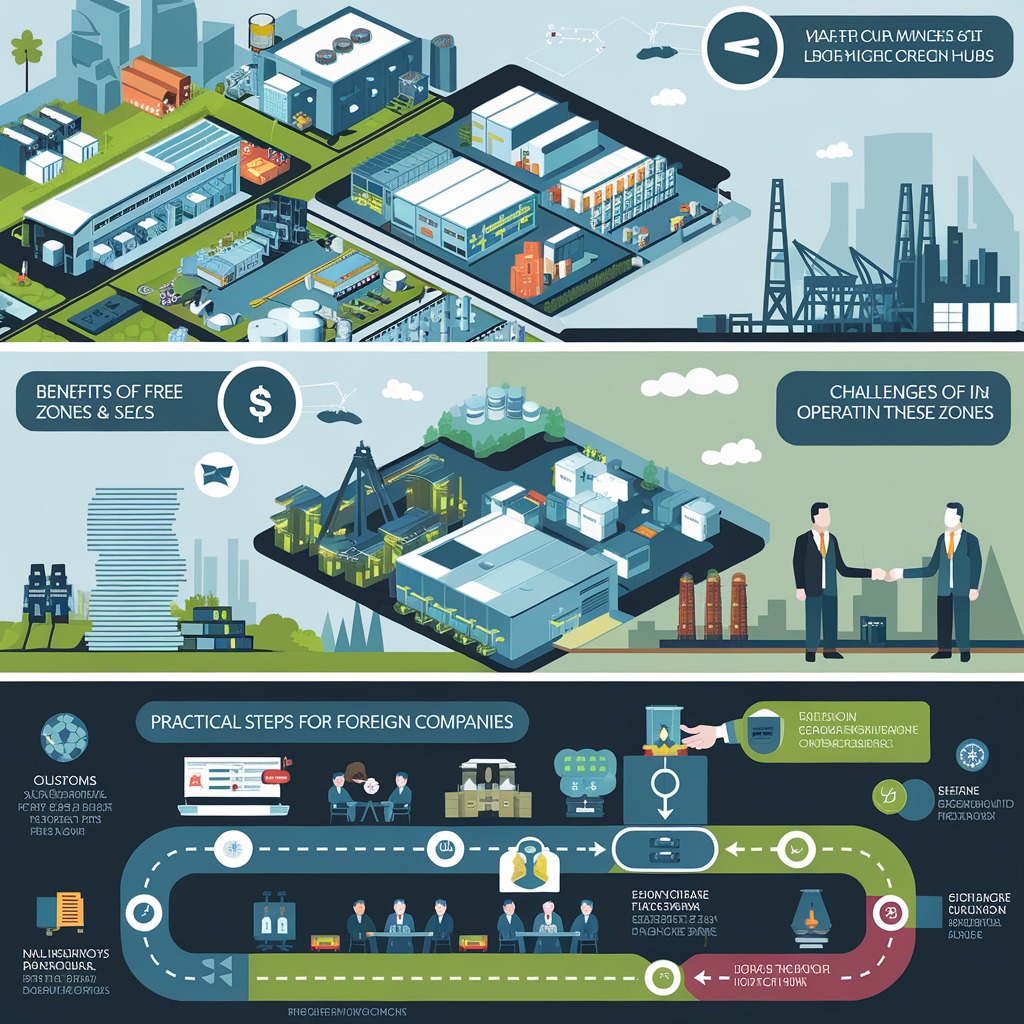
-
Key Government Contacts for Business Registration
For businesses looking to operate in Pakistan’s economic zones, the following authorities can provide assistance:
-
Board of Investment (BOI): www.invest.gov.pk
-
Export Processing Zones Authority (EPZA): www.epza.gov.pk
-
Pakistan Customs (FBR): www.fbr.gov.pk
-
Khyber Pakhtunkhwa Economic Zones Development & Management Company (KPEZDMC) – For opportunities in Dir and Swat.
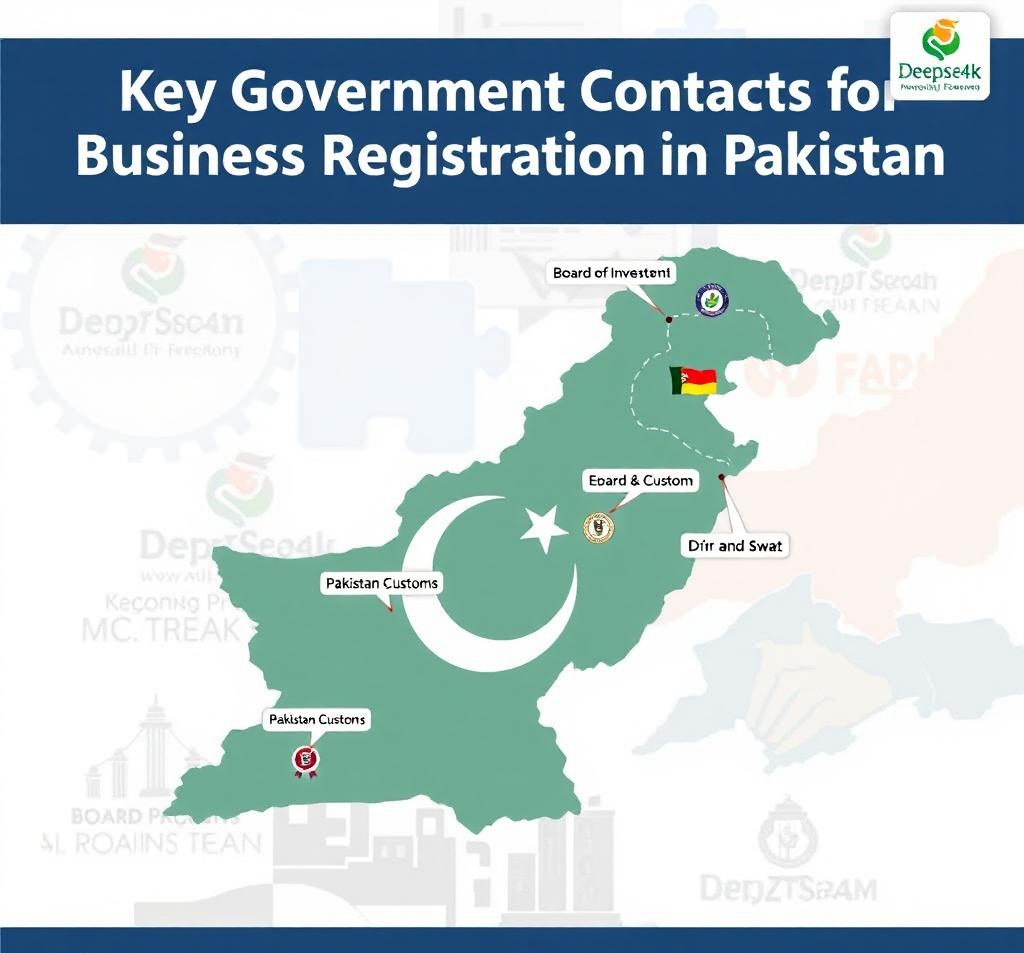
How to Start a Business in Pakistan’s Free Zones & SEZs
Pakistan is rapidly emerging as a prime destination for foreign investment, thanks to its Special Economic Zones (SEZs), Export Processing Zones (EPZs), and Free Zones. These areas provide tax exemptions, duty-free imports, and simplified regulations, making them ideal for businesses looking to expand in South Asia.
Benefits of Investing in Pakistani SEZs
Investing in Pakistan’s SEZs comes with multiple advantages, such as:
✅ 10-year tax holiday for businesses.
✅ Duty-free import of raw materials and machinery.
✅ 100% repatriation of profits for foreign investors.
✅ Strategic location under the China-Pakistan Economic Corridor (CPEC).
Best Industrial Zones in Pakistan
Some of the most promising industrial zones in Pakistan include:
-
Rashakai SEZ (Khyber Pakhtunkhwa) – Ideal for manufacturing and export-based businesses.
-
Allama Iqbal Industrial City (Punjab) – A major hub for textile and automotive industries.
-
Dhabeji SEZ (Sindh) – Located near Karachi port, perfect for logistics and heavy industries.
How to Register a Business in a Free Zone in Pakistan
Starting a business in a Free Zone is simple:
-
Choose the Right Zone – Select an SEZ/EPZ based on your business needs.
-
Apply through the Board of Investment (BOI) – Get approval for your investment.
-
Obtain Licenses – Register with EPZA (Export Processing Zones Authority) and Pakistan Customs.
-
Set Up Operations – Start importing machinery and begin production.

